15+ Sample Wedding Budget Worksheets
-
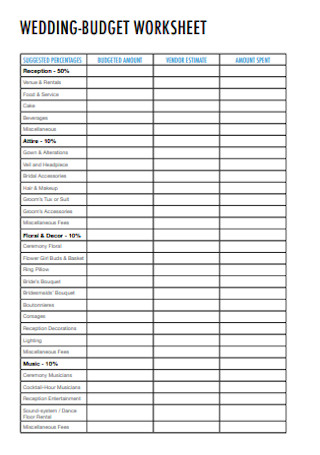
Sample Wedding Budget Worksheet
download now -
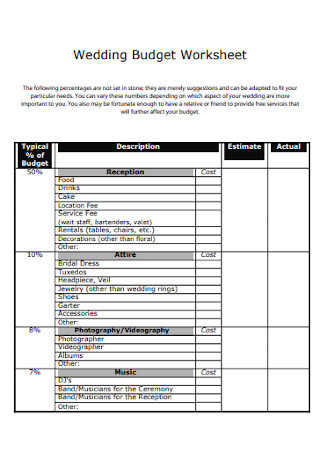
Wedding Budget Worksheet Example
download now -
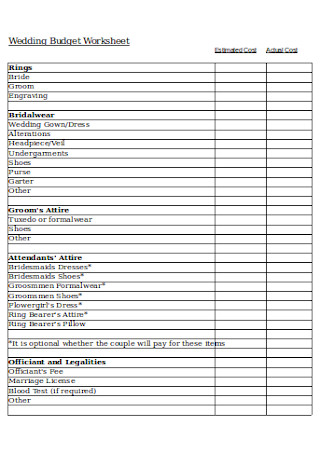
Sample Wedding Budget Worksheet Template
download now -
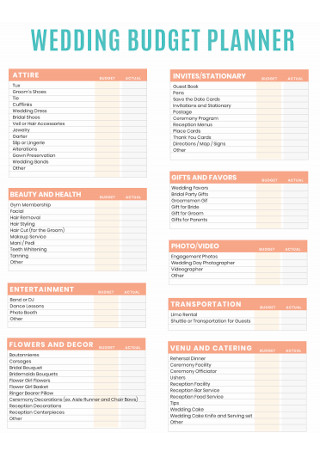
Printable Wedding Budget Worksheet
download now -
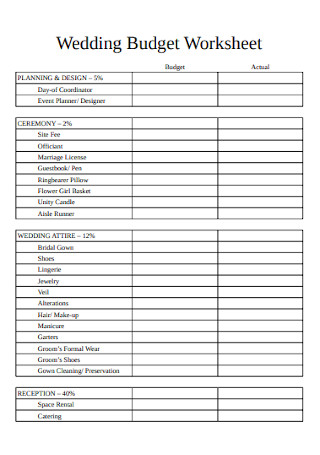
Wedding Budget Planning Worksheet
download now -
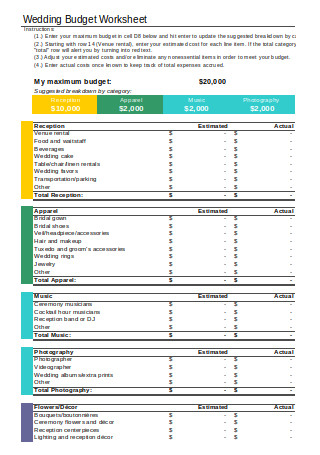
Formal Wedding Budget Worksheet
download now -
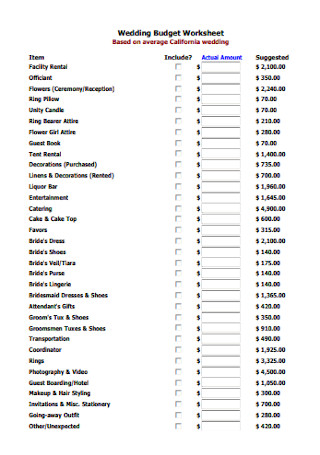
Standard Wedding Budget Worksheet
download now -
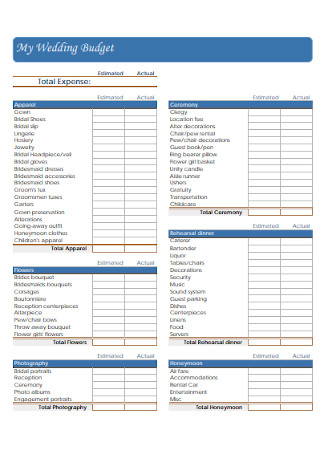
Wedding Budget Expense Worksheet
download now -
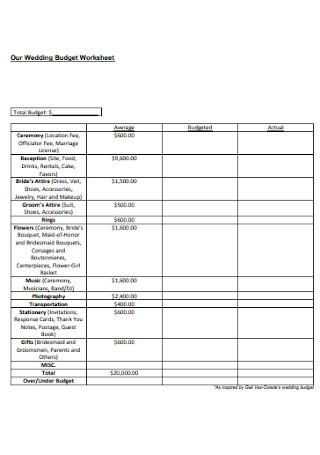
Our Wedding Budget Worksheet
download now -
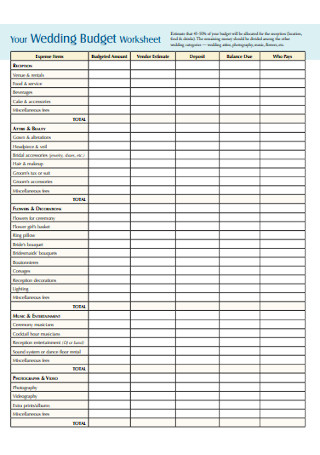
Wedding Budget Worksheet Format
download now -
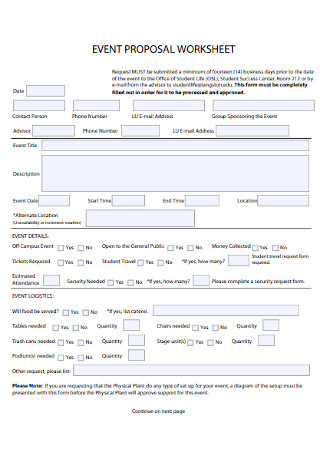
Event Budget Proposal Worksheet
download now -
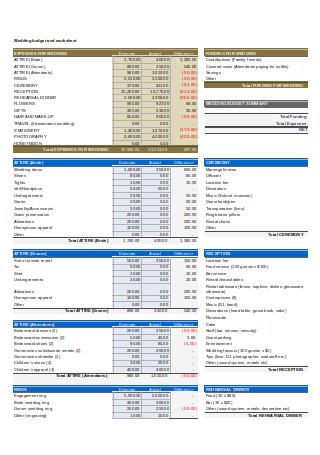
Simple Wedding Budget Worksheet
download now -
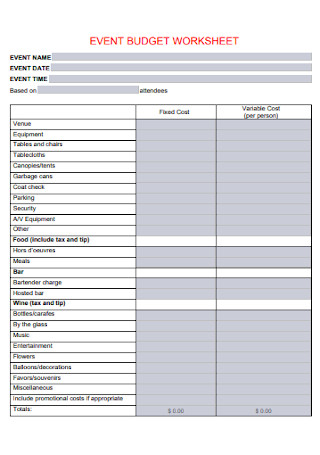
Sample Event Budget Worksheet
download now -
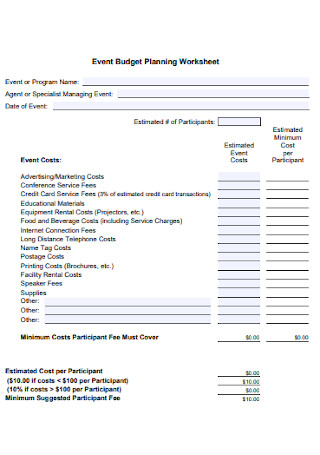
Event Budget Plan Worksheet
download now -
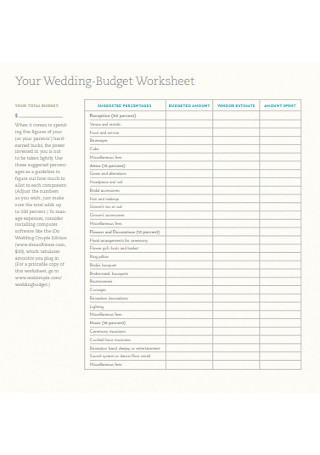
Simple Wedding Budget Worksheet
download now -
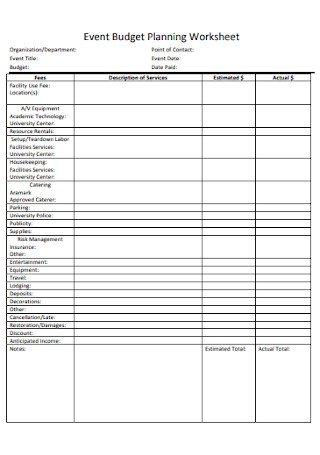
Wedding and Event Budget Planning Worksheet
download now
FREE Wedding Budget Worksheet s to Download
15+ Sample Wedding Budget Worksheets
What Is a Wedding Budget Worksheet?
Typical Wedding Expenses
Tips on Controlling a Wedding Budget
How to Create a Wedding Budget Worksheet
FAQs
What should your wedding budget be?
How much should I save for a small wedding?
What is the most expensive part of a wedding?
Why set a wedding budget?
What to include in a wedding budget?
How to decide on a wedding budget?
What Is a Wedding Budget Worksheet?
A wedding budget worksheet is a working file that lists the requirements, provides the details, and summarizes the expenses involved in wedding planning. It typically comes in a table or spreadsheet format.
According to The Knot Worldwide, the estimated average for wedding reception spending cost roughly $22,500 in 2021. Back in 2019, the average cost was only slightly higher than the current estimate, at $23,000.
Typical Wedding Expenses
Weddings are notorious for their sometimes outrageous expenses. But when it comes to these special occasions, there are your non-negotiables, like wedding rings; and then there are the flexible items, such as liquor or giveaways. Whatever your preferences, couples can expect to shell out some expense no matter how simple the ceremony. The items below are some examples of typical wedding expenses:
Tips on Controlling a Wedding Budget
Are you on a tight budget? Or maybe big weddings are not your thing. Some couples choose to have a low-key wedding then go all out on their honeymoon expenses. Many people find lavish weddings to be somewhat overrated. Others would prefer to be resourceful and keep to a modest budget when it comes to wedding planning. The following tips can help you stick to your budget and prevent overspending:
How to Create a Wedding Budget Worksheet
Preparing a budget worksheet will help couples keep track of expenses and deadlines. Depending on your vision of what you want the wedding to be, your worksheet can be as detailed as you need it to be. Follow the easy guide below to get started!
Step 1: Decide the Size of the Wedding
To begin planning, it is important to know what you want before creating your worksheet. It helps to have a clear goal of the kind of wedding you and your partner envision for yourselves. How big do you want your wedding to be? Are you envisioning an intimate and tight-knit group of close family and friends? Or are you planning to invite at least 150 guests? The planning stage is crucial. It’s helpful to create a timeline for when to begin acting on your plans. You can also come up with an initial guest list and start working on the wedding invitations.
Step 2: Prepare Your Worksheet
You are free to use any format and application that you find most comfortable. Using an Excel spreadsheet is a convenient way to organize your budget and to-do lists. A simple table on MS Word is also an option. Others choose to integrate a calendar into their budget worksheet. Whatever your preferences, just make sure it is organized and editable, so it’s easier to make changes.
Step 3: List Down All Important Information
Your worksheet can be simple or detailed, depending on your budget plan. Fill in all the necessary details of your wedding requirements. You can arrange your items in whatever order you prefer. Some order it alphabetically or according to priority and urgency. For each item, you can include the name and contact details of the vendor, estimated budget, actual or total amount, and payment deadlines.
Step 4: Don’t Be Afraid of Changes
It is important to note that changes are sometimes unavoidable. It’s good to have vision and goals; but at the same time, also learn to be flexible in case things do not turn out the way you expect them to. Minor changes here and there are perfectly normal and acceptable. Maybe you happened to stumble upon a better photographer with a better offer? Or maybe you’re not happy with how the caterer has been handling things so far in your planning. If you do get a better deal or a lower cost option, make sure to weigh your options accordingly. It’s best to plan early so that you won’t be rushing and stressing over everything when the wedding day draws near.
FAQs
What should your wedding budget be?
According to Brides.com, a typical wedding breakdown would look something like this: Couples should expect that a big chunk of the budget will go to catering and venue, typically 40% is spent on this alone. Photography and videography come in second place, where around 15% of the budget is spent on event documentation. Other important areas like flowers, décor, and music make up roughly 10% each of a wedding budget.
How much should I save for a small wedding?
Take advantage of your engagement period (or even earlier than that) to set aside money and build your wedding fund. Of course, families and parents will normally pitch in too. But as a couple about to get married, the earlier you start saving, the better. Set aside 10-20% of your monthly income to save for your wedding plans.
What is the most expensive part of a wedding?
Parts of a wedding that incur the most costs normally involve logistics and rentals. The venue and catering tend to take up a large chunk of a wedding budget. You need to think about the tables, chairs, hall decorations, centerpieces, etc. Usually, it would also depend on the number of guests. The more people on your guest list, obviously the more people you need to feed. Documenting the wedding day can also be quite expensive. Photography and videography package rates can range from affordable to costly.
Why set a wedding budget?
It is important to set a wedding budget for two main reasons. First, it’s to promote responsible spending. It can be easy to get carried away sometimes with wedding preparations and plans; which is why couples need to stay within a reasonable budget. The other reason is weddings are only part of a marriage. The wedding ceremony and reception is only the beginning of a married couple’s life together. Starting a family will entail a lot more expenses than just flowers or decorations. So it’s wise to always keep these things in perspective.
What to include in a wedding budget?
A wedding checklist can be pretty long. It is crucial you know the items you want included and prioritized. Create your wedding budget worksheet by starting with the basic requirements first. List down the venue, photography, videography, wedding dress, catering, invitations, décor and floral arrangements, tokens, etc.
How to decide on a wedding budget?
Wedding organizers and hotels offer various wedding packages that a couple can choose from. These wedding packages enumerate everything that is included, so it makes the decision a little easier for the engaged couple. These packages can range from affordable to expensive. Another way to decide on a wedding budget is by collecting sample quotes from different suppliers. You can use these to weigh your options. One way to do this is by creating a table of the pros and cons of each of your top two or three choices.
A wedding day is a significant milestone for anyone. But just because it is an important day, it doesn’t mean you need to break the bank to have a memorable wedding. Be smart with your finances and resourceful with what you have. Budgeting requires careful planning and unwavering commitment. Are you eager to start your wedding plans? Pick any customizable and printable template above!
